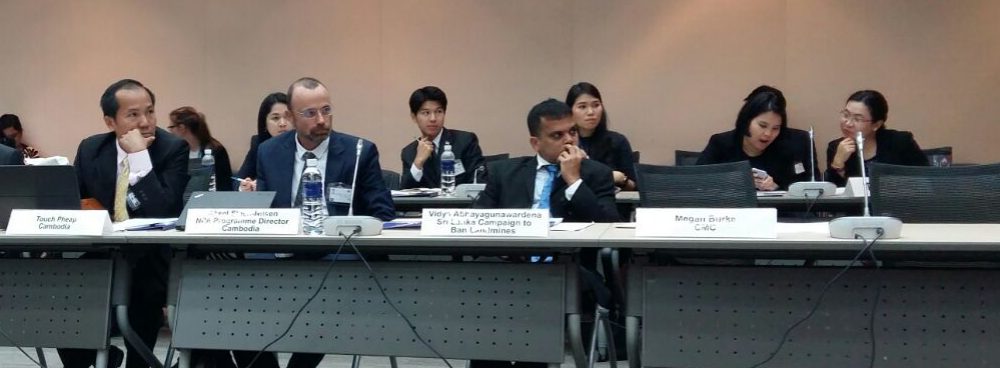
Photo by Waronont Joe, Unsplash
South East Asia regional seminar on “Cooperating to implement the Convention on Cluster Munitions: the country coalition concept”

The seminar, held in Bangkok, Thailand, on 16 to 17 March 2017, was the initiative of the Permanent Representation of Germany to the Conference on Disarmament in its role as President of the 7th Meeting of States Parties to the Convention on Cluster Munitions. The meeting was jointly organized by the European External Action Service through the EU Non-proliferation Consortium, and the United Nations Economic and Social Commission for Asia and the Pacific (UNESCAP) with the support of the Implementation Support Unit of the Convention on Cluster Munitions (ISU-CCM). The seminar was attended by representatives of 7 regional States: Cambodia, Indonesia, Lao PDR, Malaysia, Philippines, Sri Lanka and Thailand. Also participating were representatives of EU member States, international organizations, non-governmental experts and civil society from the South-East Asia region.
Participating as resource persons were representatives of the International Committee of the Red Cross (ICRC), Norwegian People’s Aid (NPA) and the Cluster Munition Coalition (CMC). The Geneva-based Implementation Support Units of the Convention on Cluster Munitions (ISU-CCM) and the Anti-Personnel Mine Ban Convention (ISU-APMBC) also provided technical their input to the workshop.
The purpose of the seminar was to discuss future developments impacting the implementation of the Convention on Cluster Munitions (CCM) with a specific focus on the concept of establishing “country coalitions” (i.e. with a country specific focus) as a means to enhance international cooperation and thus support the implementation of the Convention in South-East Asia. A coordinated approach concerning destruction and clearance (including mapping and securing of contaminated areas) of cluster munitions and assisting victims, involving donor states and operators would support States Parties to fulfil their commitments under the Convention. Furthermore, it envisioned that a country specific approach is required to help ensure progress in implementation of the CCM.
Detailed information on the seminar and its outcomes are outlined in the following documents: Opening statement by Ambassador Biontino, Agenda and Final Report
A dedicated page on the seminar was also released on the website of the EU Non-Proliferation Consortium.